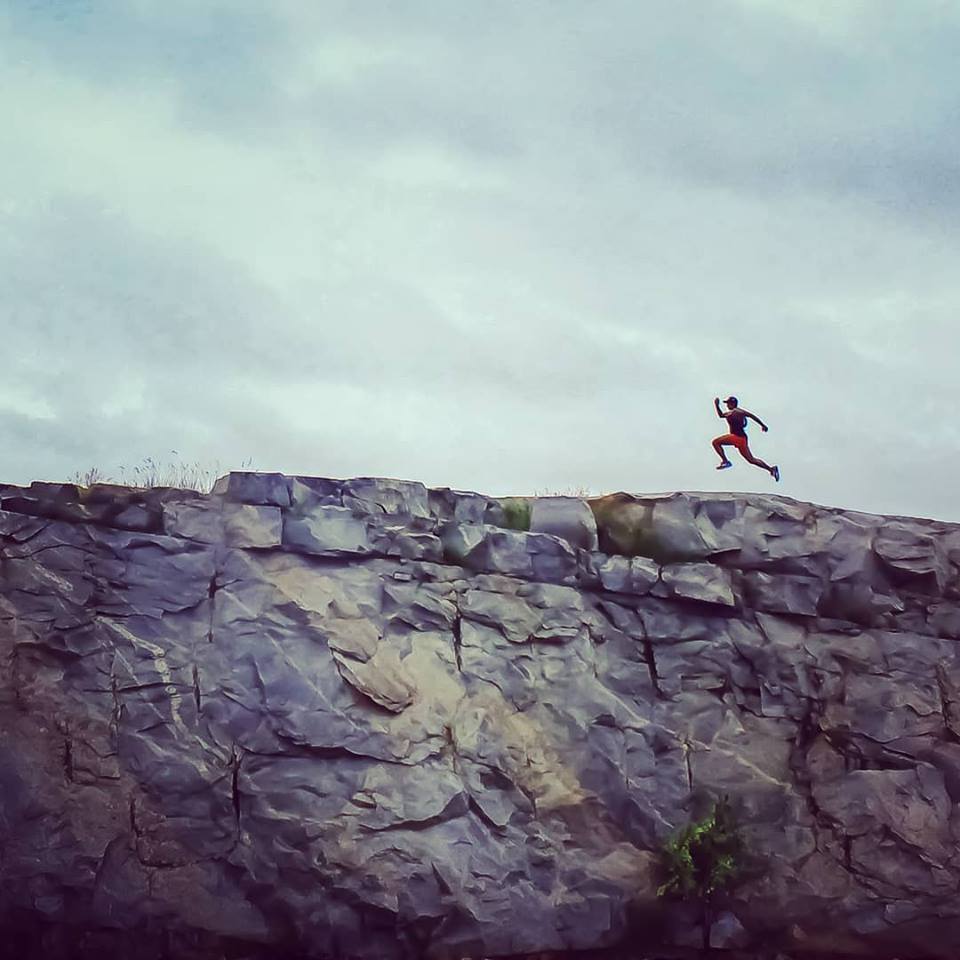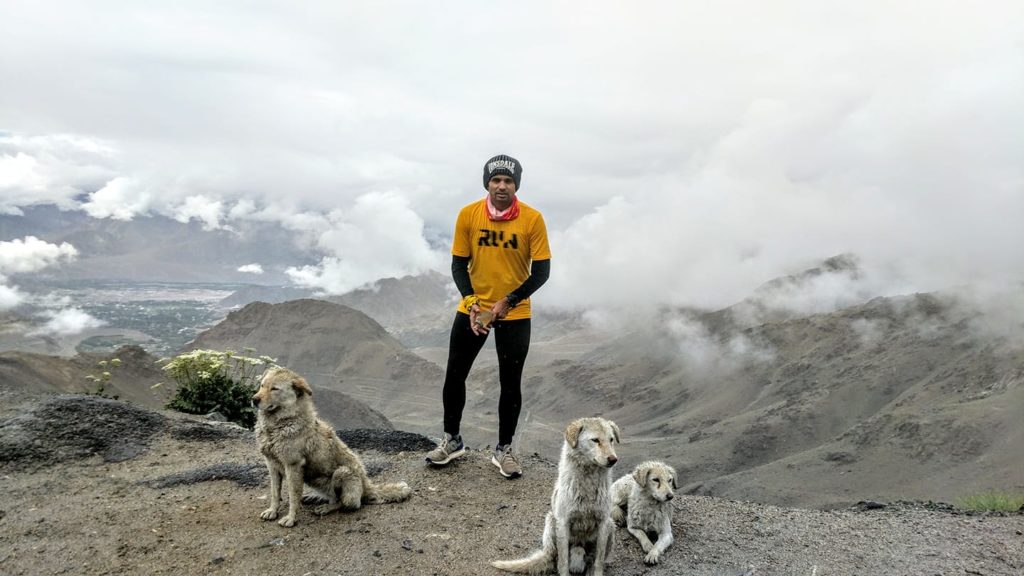Featured
‘This guy? He can’t do it.’ Well, I can and I did | By Taher Merchant
Taher Merchant is an ultra-runner who became the first Indian male to finish the Tenzing Hillary Everest Extreme Ultra-marathon in 2018.

Taher Merchant is an ultra-runner who became the first Indian male to finish the Tenzing Hillary Everest Extreme Ultra-marathon in 2018. It's a 60 km Marathon, also known as the world's highest ultra-running event which Taher completed in 19 hrs, 15 mins and 10 secs.
Firstly, before I get into running, let me explain the different formats of running because what happens is… every day, everywhere I go, I meet people who tell me I have run marathons right.
So, I think it’s only fair to give credit to a person who has run a marathon. A marathon is 42.195 km and anything below that is then a half-marathon and then there’s the Terry Fox run which is like a 10 km run, not a marathon.
Ultra-running is anything that is beyond 42 km, that could span from 42 km it could go on to 250 km. It’s a very high endurance sport, requires a lot of training. It’s a sport where after a point it’s not your legs that do the job, it’s your head that does the job. You’ve to be mentally very, very strong. You’ve to have great mental power, more than physical power to be an ultra-athlete.
For an ultra marathon, if there are 5-6 months to train, the training would start with physical endurance and then we would start long walks. This is the time when your mind is going to give up on you, right… You just have to keep telling yourself that this is it. You have to visualise yourself in the race, you have to visualise yourself at the finish line. This is what I do.

So it was 2012. I was an obese kid, I was about 110 kg and I went to the gym. But at that point, there was some issue and I could not sign up. And my wife, you know I took my wife along…I told my wife, 'Hey, there’s a stadium nearby. Let’s just start running, you never know, we might just end up losing some weight.'
Fair enough, I started running 400m, 800m and it went on to 5 km, 10 km. Then, I started to realise that this is something I’m beginning to enjoy. I don’t know how the time flew, within one year, I went from doing 400m to running in my first event which was the TCS 10k, without any formal training. And I finished the race in an hour’s time. That’s when I realised… I was like, ‘I know I’m enjoying this, let me now take this forward.’
That’s when I started training. Then I came across the Jayanagar Jaguars in 2016, I came across coach Pramod Deshpande. I followed a structured training programme and during that training, I started doing 10k, then 21k, then 42k, then 50k and then 60k. During these eight years, it has been a gradual, step by step increment in terms of distance because I know this is what I want to do with my life.
Whenever I train, I always tell myself that I can do it. I keep my head strong, I always fight the demon… I get the angel out when it’s required… that’s what I do and this is what everyone as an ultra-athlete does.
At some point, in training, I’m not even talking about races… in training, there are many times where you feel that let’s just forget it, it’s just 10 km. That’s when your mental strength comes (into play)…to go the distance, to finish it.
As an ultra-athlete I want to be running all my life, not just one event or ten events. This is how I got into running and I am still running and it’s still unbelievable to me that I ran 110 km.
With this journey of road running, I also started something called trail running. I started running in the hills, I started running in the mountains. I believe that I was destined to do this. This is my calling. And I pursued that.
Road running is basically like running on tar. The surface is flat so you can run fast. What’s the worst that can happen? You’re gonna hit the traffic or it’s gonna be a bad day if it starts to rain. But you will always have support. You can always find someone with a water bottle or a station from where you can buy water.
But what happens when you are out in the hills? There is no one. It is a self-sustained format. So you have to have your food in your backpack, you have to carry your water, you have to carry your clothes, you’ve to have a first aid kit. These are the things… you have to have nutrition, most important. So you have to have all these things when you go. And it’s a very you cannot predict what’s gonna happen next kind of scenario.
And the terrain is very very different. It’s much more stony and you have to climb, right? So you’re going higher, you’re gaining altitude, as you gain altitude your breathing capacity goes down, right? So it has its own challenges. I feel that these challenges actually change you and push you to do more and more. It gives you more thrill in life.
I pursued it because I felt that there is always more. I felt that this cannot just be it. I have been training in Ladakh for three years. After I finished the Ladakh marathon I was like, ‘Guys, this cannot be it. There has to be something more challenging, there has to be something more difficult than this.’
That’s when I took up Everest. I finished the Everest and I attempted the toughest footrace on earth, called Marathon des Sables. You have to cross Sahara on foot, 257 km, that it's self-sustained again.
So when you start the race you start with food for five days. The only thing that they give you is nine litres of water a day. So these are the kind of races that I enjoy doing, you know..more adventurous. That gives me a high out of doing it, I know I would be on my knees by the time I reach the finish line. I wouldn’t want to do a race where I know I just have to run 40 miles, it’s straight, it’s flat and I can see the finish line.
I would rather do a race where I go, ‘Oh boy, this is going to take all I have to cross that finish line.’

The biggest challenges that I face in my races, which I cannot prepare for in a city like Bangalore are terrain, altitude and weather. If I want to talk about any particular race, I would take two races.
One would be the Everest Ultra where I was 20 km into the race and there was supposed to be a hydration point but there was none. Because the weather became extremely cold and I could tell that it was snowing ahead of me. The next stop was only after 20 km and how was I to go 20 km without water?
It started to snow. Luckily, you know, God has his way of showing you, I found a small stream and I managed. But as I went further, with the snowfall, it got terrible with one layer of clothing. This is what I say, in a mountain race, you have to be prepared for anything.
How did it feel after doing it (the Everest Base Camp Ultra Marathon)? I was happy to be alive after that race. That’s the way I can put it. It gave me a satisfaction that you know this is something that I trained very hard for and I finally did it. It gave me a great boost in my confidence, and I was over the moon, let me be honest, I was over the moon.
At first, when I crossed the finish line, it was surreal because I was very emotional. Before I had left, my daughter had drawn a painting. She drew a painting of me standing on a hill with the finish line at the bottom. And at the end of the race, it was the exact same scenario.
I was there on top and I could see the finish line and I just burst out. You know, in ultra-running, you experience all the emotions of life. You’ve happiness, you’ve sadness, you cry, you laugh, it’s all part of the race. But yeah, I was very excited and happy to see that yes, an Indian can also do this kind of race.

It has been 13 years that any Indian had finished the race, I was the first Indian. A lot of people, they were six-feet tall, they were European, they were well-built. They were looking at me and saying, ‘This guy? He can’t do it.’ I looked up and I told them at the start line, ‘I have trained hard and I deserve to be here.’ That’s why I made it here.
So when I finished, man, it was…you take me back to the finish line. I was over the moon and the only thing I wanted at that point was my family, I just had to get back to them. It was a great moment, I have no words to explain it, it was just magic.
Then, at the Marathon des Sables, the temperature is about 45-50 degrees and you are running on sand. So, I saw the file of people ahead slowing down. And I cut across from the file, I thought I would run faster. As I ran, I could not gauge a mirage and I had a fall.
So every race, as I said, it teaches you something. The more you fall, the more you rise. That’s what I feel.
I don’t think I have achieved a lot yet, I think there’s a lot more to come. There are a lot of things that I want to do, a lot of races, which I would not say are competitive in format…but I would say, as a personal goal, I would like to achieve, one of them being the Barclay’s marathon.
Again, I have done a lot of road races, quite a few ultra-marathons. I still feel that every race you do you meet people who are crazier than you. They share their experiences and you learn from them.
And when you learn from them, you’re like, ‘Oh boy, when I just thought I had achieved it all, I’m nothing’. That’s when your journey begins again. That’s when you start from scratch again. Hey, I’ve got a lot of things to do and I have a lot of things to achieve. I think my achievements are nothing at present, I still have a long, long way to go.






